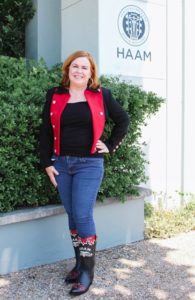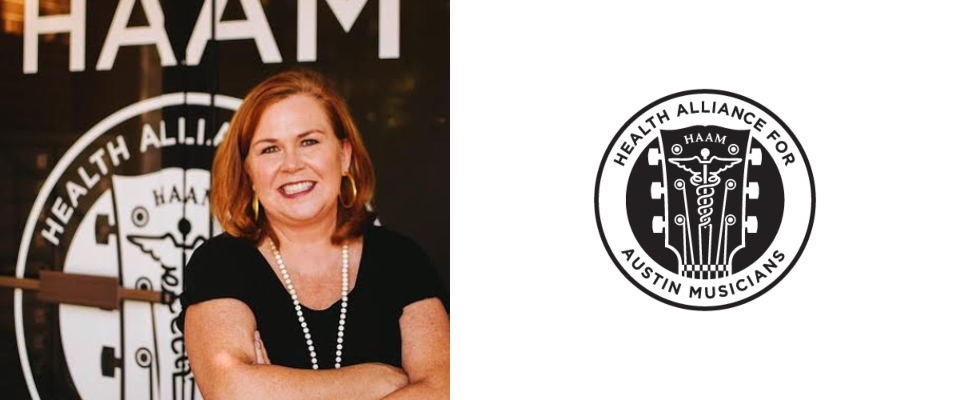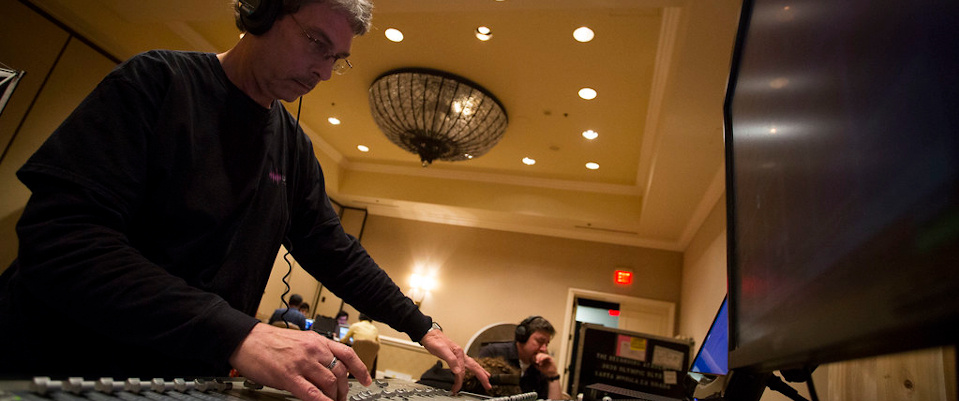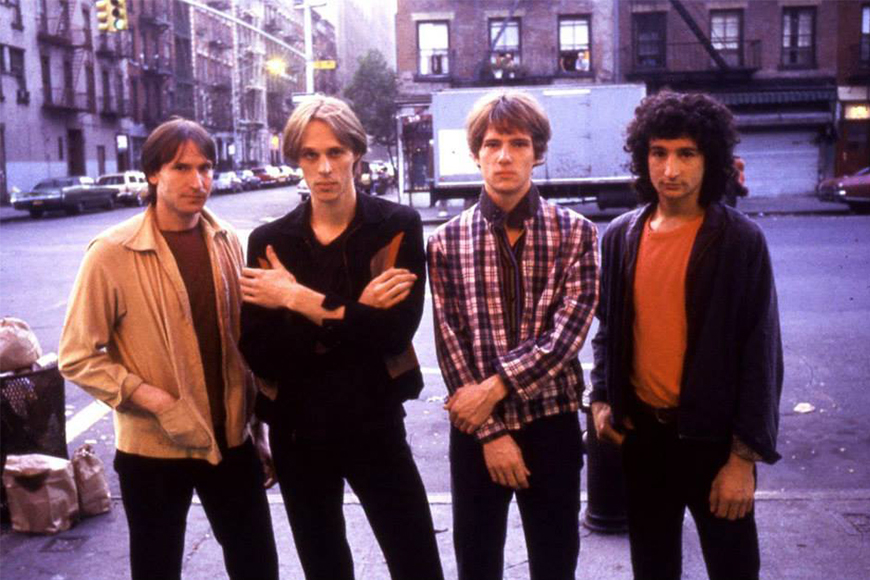by Jeff McCord
As COVID-19 cases continue to rise around the world, the crisis is hitting everyone hard, but especially those who were already struggling to make ends meet.
Here in Austin, the mayor has issued a ‘shelter in place’ order for Travis County, which means everything is closed, save for essentials – doctors, hospitals, pharmacies, grocery stores, and restaurants that have set up drive-through deliveries. For musicians and others living gig-to-gig, paycheck-to-paycheck, there’s virtually no work to be had. What happens if, on top of all that, you get sick?

Even in the best of times -which these are certainly not – musicians in crisis have reached out to the many support systems Austin offers. Reenie Collins is the Chief Executive Officer of the Health Alliance of Austin Musicians (HAAM).
“I mean, it’s just really heartbreaking,” she says. “I can’t tell you the texts and emails and calls that we’ve gotten from people. They were already devastated by the cancelation of SXSW. Folks are just really, you know, they don’t have enough to eat. They don’t know how they’re going to pay their rent, how they’re going to pay their utilities. That is not normally what HAAM does. We focus on health care and health care access and do the bigger picture items. But we just knew we had to react.”
In normal times, HAAM helps people get enrolled in the Affordable Health Care Act and helps to the tune of almost two million dollars in premium assistance. Of the estimated 7,000 to 8,000 working musicians in the area (taken from the city’s music census done a few years ago), HAAM has 2600 members.
“Musicians come to us all year long, and if we can’t get them enrolled, we help them find other resources. If you’re on insurance, you’re actually going to help have better health care access, but we work with specialty care doctors and primary medical care doctors, other charity organizations to get HAAM members and musicians help if they don’t have insurance coverage. We also have dental and vision and wellness and hearing and all kinds of services that we provide.”
“The other piece that is so critical right now, is that we’re house health navigators. Our navigators are available to talk to people in crisis in need on a real-time basis and help them figure out what they need to do to get whatever services they need.”
Yet even with all these services, business as usual won’t get the job done. Collins knows this.
“Right now, everybody’s talking about what are we going to do for musicians, what are we going to do for the music community? And there are lots of plans and lots of big talk going on. But there hasn’t been anything concrete yet because people are trying to get systems in place and figure out what they can do. What we decided to do was we actually took $20,000 immediately and put it into an emergency fund. I have a donor. I believe it’s going to be coming in shortly, that’s going to at least double that And I know that’s a drop in the bucket. But if we can get people 100 bucks of just help right now while other things are being figured out, that’s a lifeline.”
“We already have all the infrastructure in place that knows about, you know, musician’s eligibility, what their income level is. So we’re able to move pretty quickly. We are taking the funds for basic needs – HEB food cards and prescription medication and things like that – that are emergencies, so that people can at least get something in their hands.”
As HAAM expands their role, they’re partnering with other services out there. “That’s probably not going to be a long term role for us,” Collins explains, “but we’re working with MusiCares, the SIMS Foundation, Stand With Austin, the Austin Music Foundation to try to get Austin musicians some help. We’re working with anybody that we can to try to coordinate care, coordinate services and leverage all of our resources.”
“Our main concern is as this virus hits, musicians will be affected. And we know that HAAM will be right in the epicenter of that because we’re providing access to health care services. I think people are so scared about just basic needs survival that they’re not even thinking about, you know, am I sick?”
So what do you do if you’re worried you may have the virus?
“If you’ve got symptoms,” says Collins, “you need to call your doctor and talk to them. If you don’t have a doctor, we can help you find a clinic. I think people get overwhelmed and they hear that there is no testing going on. But that’s not really true. There’s not nearly enough. But for people who really have symptoms, we can help them find resources to do that.”
Collins encourages all musicians, HAAM members or not, to reach out for help.
Of course, HAAM itself has not been immune to all the challenges posed by this crisis. All their stepped-up activity comes at a time when they are working remotely (“We’re meeting with musicians online via, you know, webcams and things like that. Just trying to do what we need to do.”). They have had to cancel numerous fundraisers.
“HAAM needs your help. We have lost, just between now and May, we probably have lost $400 thousand dollars worth of donations that would have come in through our events that we had to cancel. But there are lots of ways to help. There’s a lot of stuff going online that streaming. There are all kinds of musicians that are setting up Venmo and tip jars and doing concerts from their homes. Just because you can’t go out, doesn’t mean you can’t support the music industry.”
“ I would just say be kind. Help each other. Musicians are doing stuff, but, you know, all of their sound and lighting people re challenged, all of our bartenders and venues. So I guess my big thing is we’re all going to be raising money. If you can, every little bit helps. What we can do is pull together, take this one day at a time and know that we can help and we can make a difference every day.”



